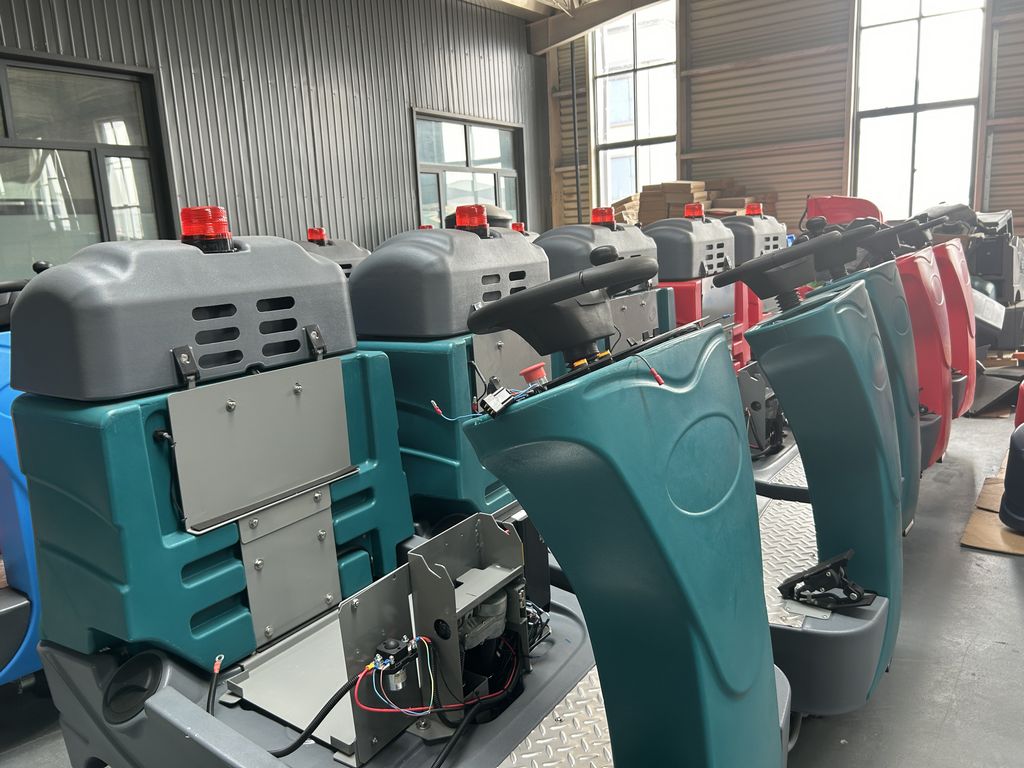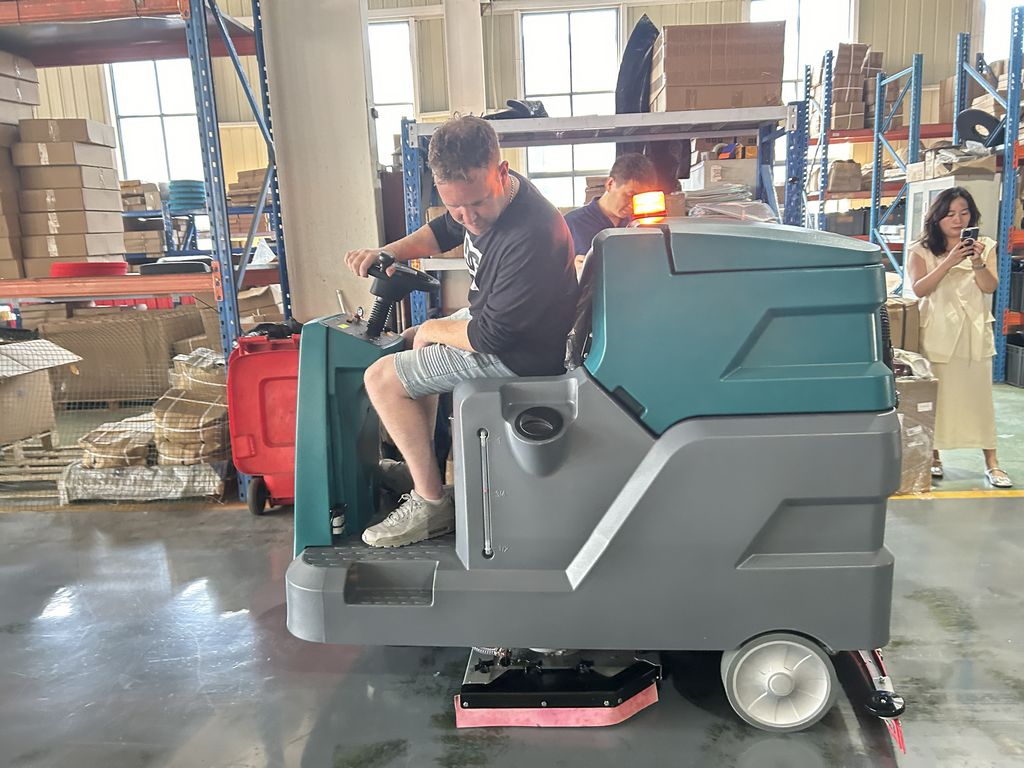
Hey there! So last week, my neighbor Dave asked me for advice about cleaning his auto repair shop’s floors. The guy’s been scrubbing concrete manually for years, and honestly, his back probably hates him as much as those stubborn oil stains do. That got me thinking—how many businesses are still wasting time on outdated methods when a cement floor cleaner machine could save hours (and spines)? Let’s chat about why these machines matter more than you’d think.
First off, let’s get real: cement floors aren’t just dirty—they’re *aggressively* dirty. Grease, tire marks, chemical spills…you name it. Traditional mopping? That’s like bringing a spoon to a shovel fight. A proper cement floor cleaner machine doesn’t just scrub; it blasts away grime with high-pressure water, vacuums up the mess, and leaves floors dry enough to walk on in minutes. Dave’s shop, for instance, switched to a ride-on model last month. Now he’s weirdly obsessed with showing off his “gleaming” floors to customers.

But here’s the kicker: not all machines are built the same. Some focus purely on power, while others prioritize water effeciency (oops, see what I did there? Let’s pretend that typo never happened). If you’re cleaning a warehouse, you’ll want something industrial with a wide scrub path. For smaller spaces like garages or workshops, compact walk-behind models might be smarter. Oh, and don’t forget battery life—nobody wants a machine dying mid-job when you’re halfway through 10,000 square feet.
Funny story: A friend once bought a “budget” floor cleaner online without checking specs. Turns out it couldn’t handle acidic stains. Cue the frantic midnight calls about “mysterious white streaks.” Lesson? Always match your machine to your messes. Cement floors in food processing plants need different cleaning solutions than, say, a motorcycle garage. Pro tip: Look for adjustable pressure settings and compatibility with eco-friendly detergents if sustainability’s your thing.

Maintenance-wise, these machines aren’t high-maintenance divas. Just rinse the tanks after use, check the brushes for debris (nobody likes a pebble jam), and maybe give the filters some love every few weeks. But here’s where I’ll get personal: Life’s too short to spend it scraping cement floors. Seriously, why break your back when technology can do the heavy lifting? It’s like that time I tried painting my house with a toothbrush—pointless martyrdom.
In the end, whether you’re running a factory or just tired of your basement floor looking post-apocalyptic, investing in a cement floor cleaner machine is about reclaiming time. Dave’s now using those saved hours to expand his business. Me? I’m just glad he stopped complaining about his aching knees. So, what’ll you do with your extra time—nap, hustle, or finally fix that leaky faucet? Your floors won’t care, as long as they’re clean.